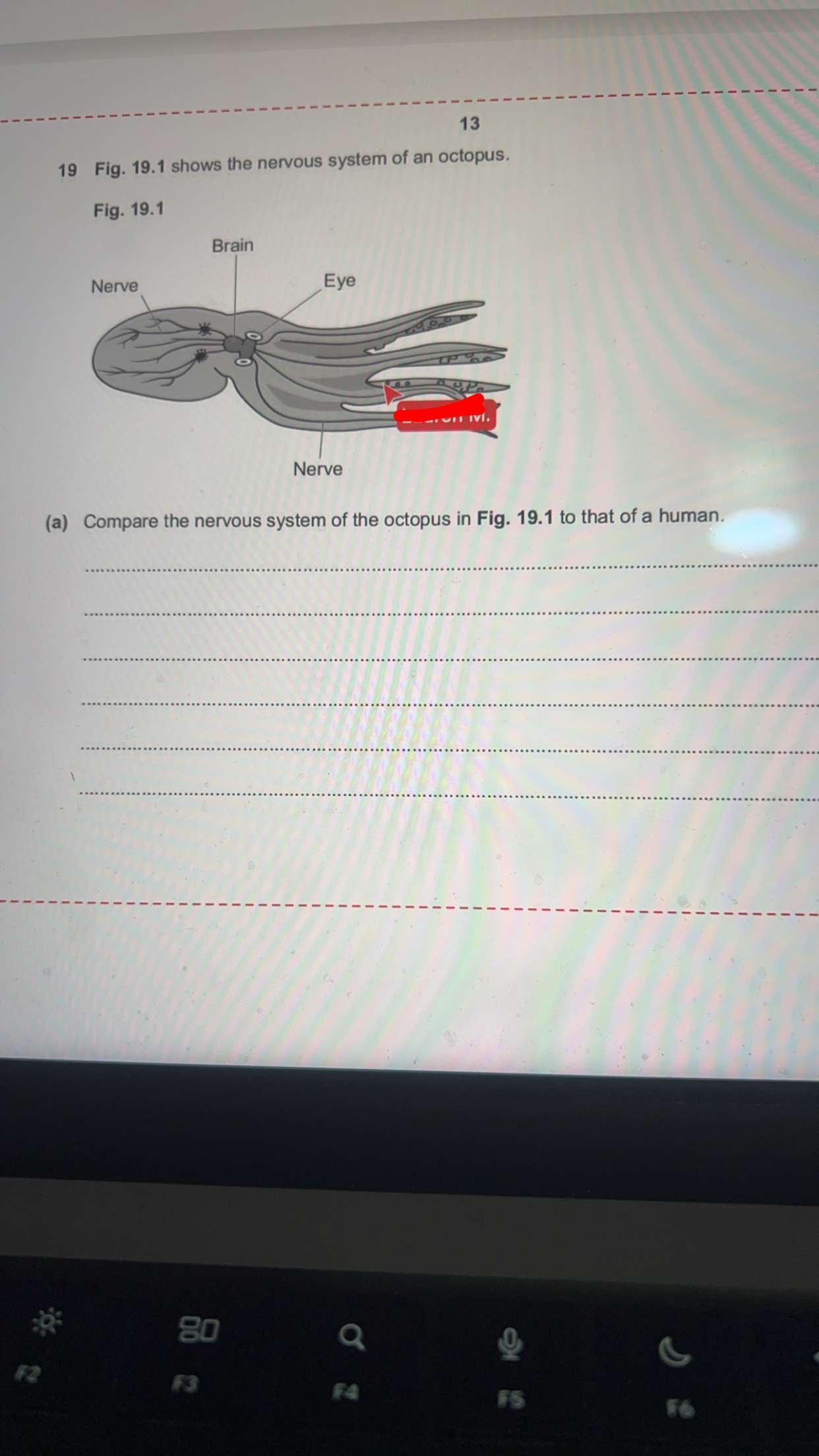Compare the nervous system of the octopus in Fig. 19.1 to that of a human.

Understand the Problem
The question is asking to compare the nervous system of an octopus, as illustrated in a provided figure, to that of a human. This will involve identifying similarities and differences in structure and function.
Answer
Octopuses have decentralized control; humans have centralized systems.
The octopus nervous system includes a central brain and large nerves in each arm for semi-independent control, with about 500 million neurons. Humans have a centralized nervous system with around 86 billion neurons, primarily in the brain and spinal cord.
Answer for screen readers
The octopus nervous system includes a central brain and large nerves in each arm for semi-independent control, with about 500 million neurons. Humans have a centralized nervous system with around 86 billion neurons, primarily in the brain and spinal cord.
More Information
Octopuses have a complex nervous system where each arm can process information and make decisions independently of the central brain. Humans, however, rely primarily on the brain and spinal cord for processing and responding to sensory information.
Tips
When comparing nervous systems, remember to consider neuron distribution and processing centers.
Sources
- Nine Brains Are Better Than One: An Octopus' Nervous System - sites.nd.edu
- 16.1 Neurons and Glial Cells – Concepts of Biology - opentextbc.ca
AI-generated content may contain errors. Please verify critical information